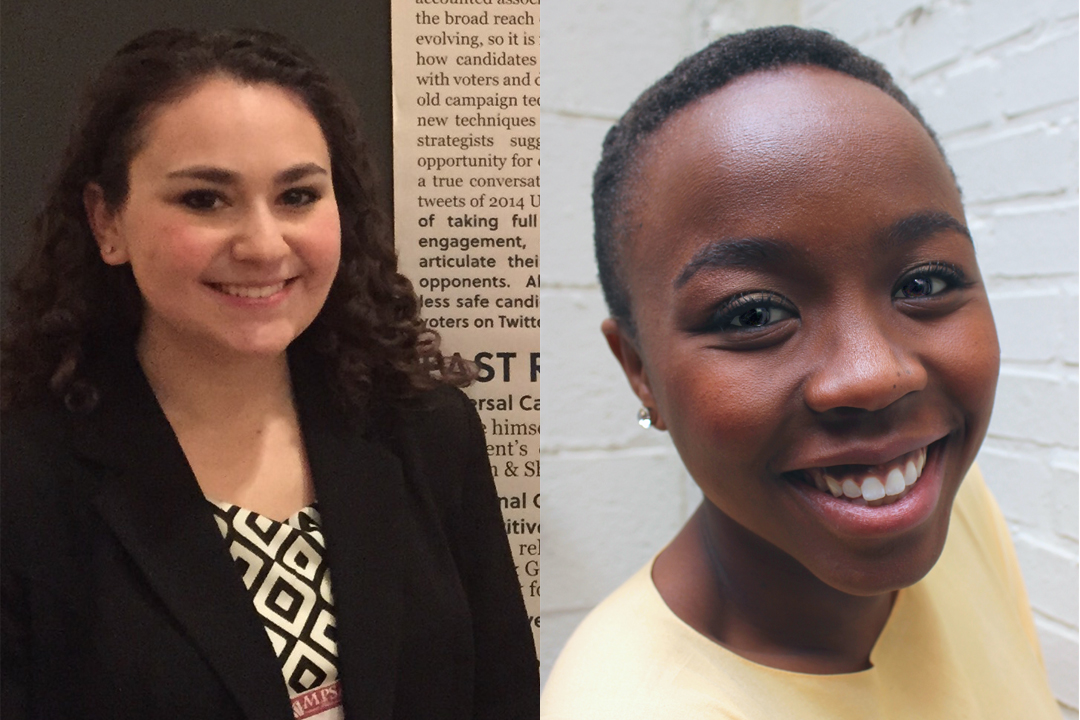Does communication on Twitter lead to action?
This year’s Manheim-Sterling Undergraduate Research Prize winners Bailey Mohr and Zinhle Essamuah are taking a hard look at Twitter to see how people are using the platform for very different purposes and to reach different goals.
Mohr, a senior majoring in political communication, is researching how candidates and organizations use Twitter to communicate with the public.
“I think Twitter has changed the way people communicate with each other, so I am interested in seeing whether it has also changed the way political candidates communicate with voters,” said Mohr who has worked on several political campaigns throughout her time at GW. “Twitter has been celebrated as a great way for people to interact with each other and start conversations, so my study will attempt to determine whether political candidates are using Twitter to its full potential and engaging voters in a conversation or if they're simply using it to promote their own platforms and ideas.”
To do this, Mohr will analyze more than 5,000 tweets, an undertaking that would not be possible without the Manheim-Sterling Prize money that will allow her to hire another student to help her go through the data. Aspiring to a career in digital political communication, Mohr will present her project at the Midwest Political Science Association annual conference in Chicago in April, where she will meet other scholars in the field and get feedback on her work.
Essamuah, a senior majoring in journalism and mass communication, was inspired to apply for the Manheim-Sterling prize following the fall 2014 jury decisions in the Michael Brown and Eric Garner court cases.
“As a journalist, filmmaker and black millennial, last semester I was intrigued by the reactions of my peers to the Brown and Garner jury decisions,” said Essamuah. “I witnessed anger, protests, confusion, apathy, ‘die-ins’, guilt and — perhaps most importantly — a story that needed to be told. The story of black millennials and their response to the Michael Brown and Eric Garner jury decisions is inspired me to create a documentary, which the Manheim-Sterling Prize will help complete.”
Her documentary will investigate how technology has impacted the way millennials view and practice social activism. She hopes to uncover what the #BlackLivesMatter movement on Twitter means for the Black-American experience and dig deep into how black millennials reacted to the jury decisions and look at social media as form of activism.
“My hope is that the documentary will have a lasting impact on the study of communications and activism,” said Essamuah. “I invite SMPA to join me on this journey by following my website, sharing it with friends and coming to see the premiere in the spring!”
Following graduation this spring, Essamuah will continue with her studies in the MA in Media and Strategic Communication as a Combined Degree student. “I am working to one day own and operate a media production company that produces content that both inspires and challenges audiences,” said Zinhle. “Until then, I look forward to continuing to learn from and serve GW’s student and academic community."


